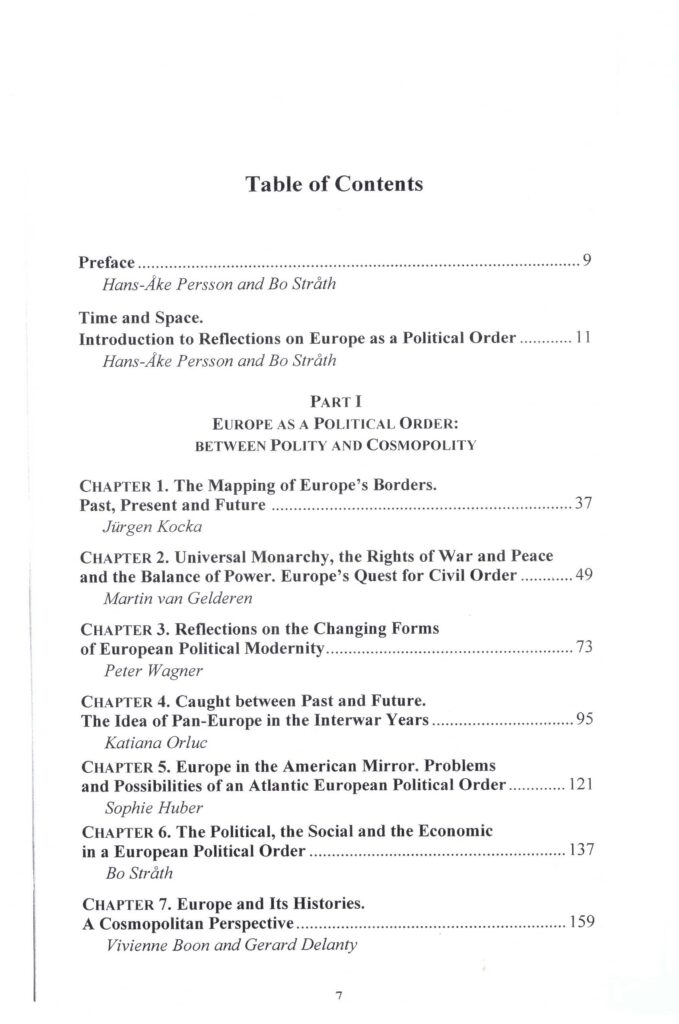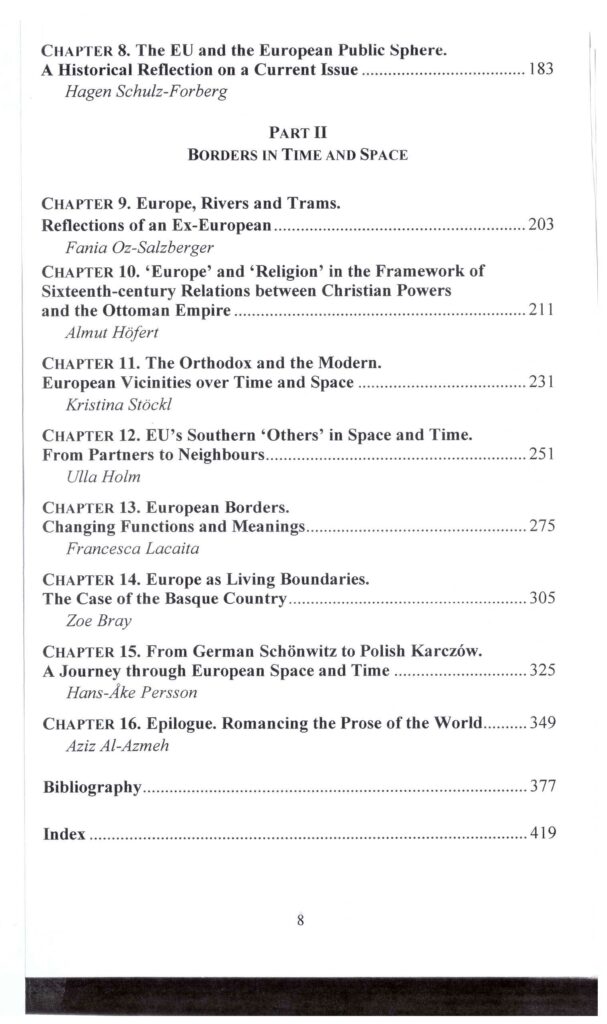Defining a Political Order in Time and Space
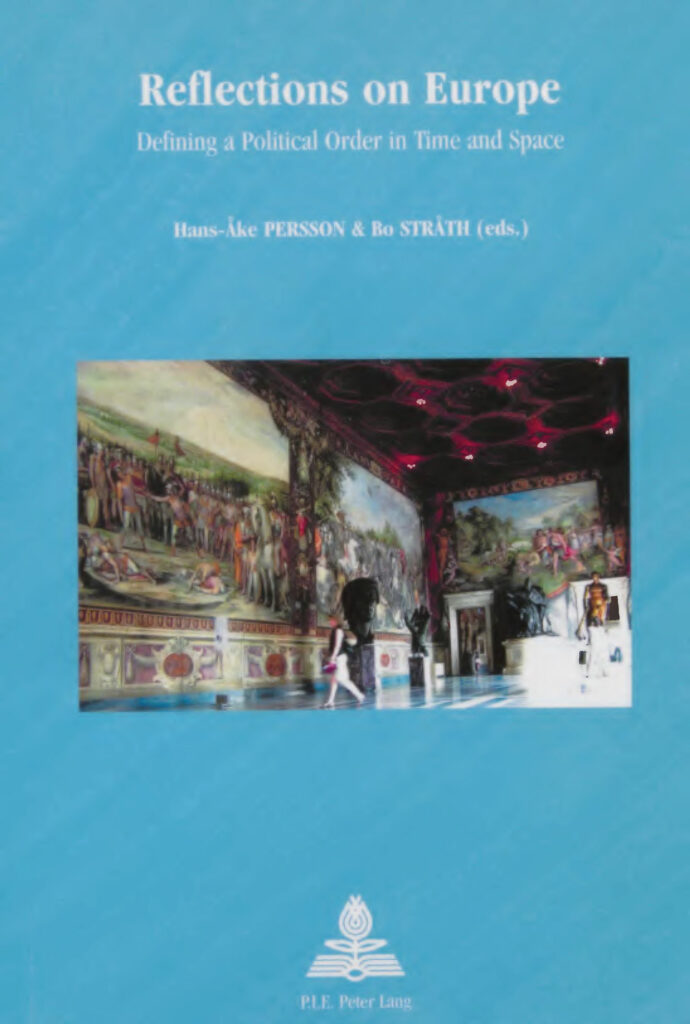
Hans-Åke Persson and Bo Stråth (eds.), Reflections on Europe. Defining a Political Order in Time and Space. Brussels: PIE-Peter Lang 2007
Stråth has known Hans-Åke Persson, HÅP, since the mid-1990s. When Stråth returned to Gothenburg University in January 1992, after his time out in the government administration waiting for the decision on the chair he had applied for there (The Journey/Research), he didn’t feel like he was on his way to his final position. The fact that he had been appointed in competition with his PhD supervisor as the successor of Jörgen Weibull, and the fact that, in those days, it was the government that appointed professors in Sweden, and the proposal of the committee could become an appeal case with petitions for a different ranking when the minister decided, contributed to a complicated situation with a poisoned atmosphere at the History Dept in Gothenburg. Stråth looked for fallback alternatives and applied for chairs at Lund University and the EUI in Florence. He was happy to be appointed to both and had to choose. The first choice was whether to stay in Gothenburg or not. It was emotionally hard because of those who had invested expectations in his appointment there. Still, an appeal to reason through the Kantian inner voice told him that the future was elsewhere. Before it became clear that the final choice would be EUI, HÅP got in touch as a Lund historian curious about what Stråth’s application for the chair might mean. Their first meeting at a conference in Travemünde was soon followed by others with discussions about future research cooperation around issues like European integration and immigration. They realized several of these ideas, such as the book project Reflections on Europe. Stråth was also involved in HÅP’s development of migration research at Malmö University College together with Christer Persson in the Malmö city administration when HÅP moved there.
As an experienced sailor, HÅP provoked Stråth’s interest in sailing. One of the first commitments of a private nature outside the Institute in Florence was weeks and weekends of training for a shipmaster’s certificate on Elba. With the certificate, they rented yachts for over a decade for annual cruises in the Baltic and the Mediterranean. The sailing also involved Stråth’s cousin Bo Malmros, another experienced sailor with sailing skill in the backbone as opposed to Stråth’s on paper. The distinction was important in critical situations, of which there were a few. Another shared interest was hiking. Stråth and HÅP walked in Tuscany and, later, in the Pfälzer Wald.
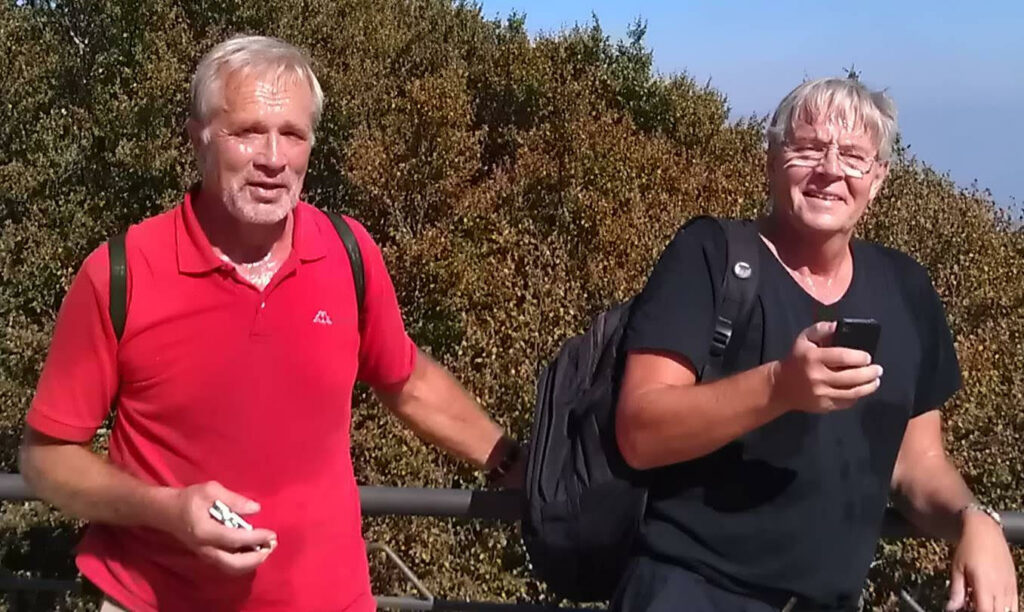
Reflecting on Europe while climbing Monte Amiata with HÅP. Photo Christer Persson
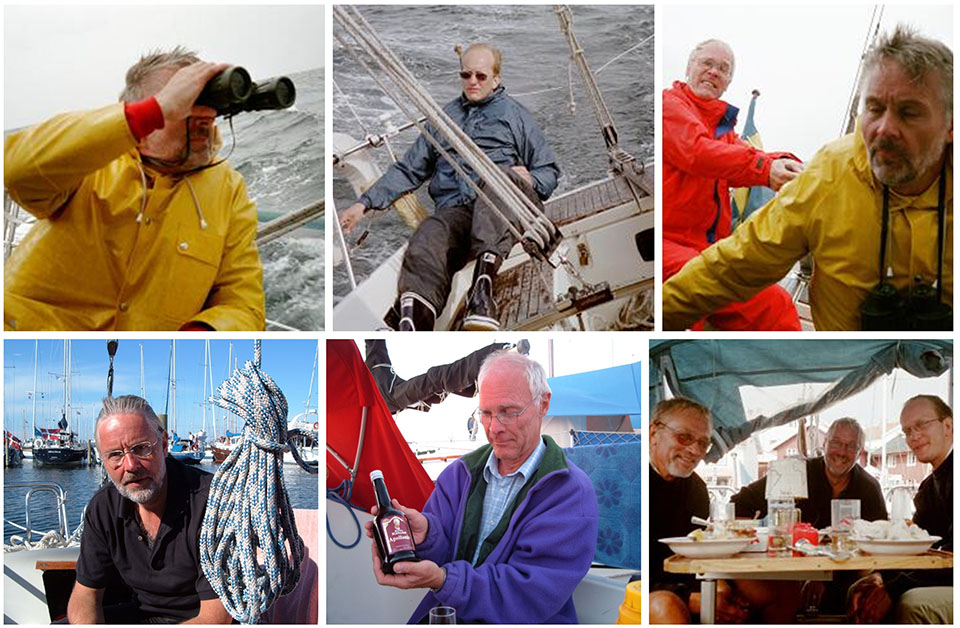
Abstract
The focus of this volume is Europe as a concrete political order. The book addresses current problems that have beset European integration from a long historical perspective to give a historical and interdisciplinary view of the present state of the crisis of European unification. The volume connects empirical observations concerning the past and the present to long-term social theory and political philosophy to discern potential futures. We discuss the borders in time and space of historical and present outlines of political concepts of Europe, whereby the borders have external and internal dimensions. Although our focus is on the political capacity of Europe, it does not confine itself to the identity and culture discourse. In the present context of near-identity between Europe and the European Union, the historical perspective which we employ emphasises the differences between the two.
This volume is divided into two parts. Part I contains historical examples of outlines and imaginations of Europe as a political order, a polity, a concrete political ordering, eine concrete politische Ordnung, drawn from early modern times up to the present day. The chapters in this part develop a tension between Europe as a polity and a cosmopolity. The concepts of polity, as opposed to cosmopolity, provide a way to go beyond the well-known dichotomy between federation and confederation, which often appears to reduce the discussion to a simple choice between nation-state and supra-state, which was perhaps a choice more appropriate to the nineteenth and twentieth centuries than twenty-first.
